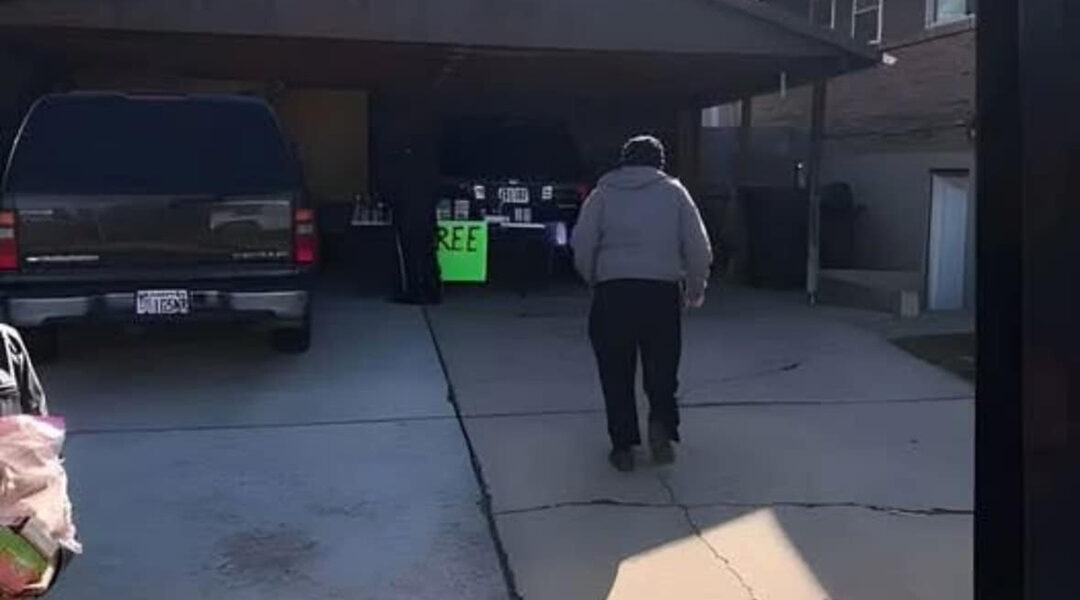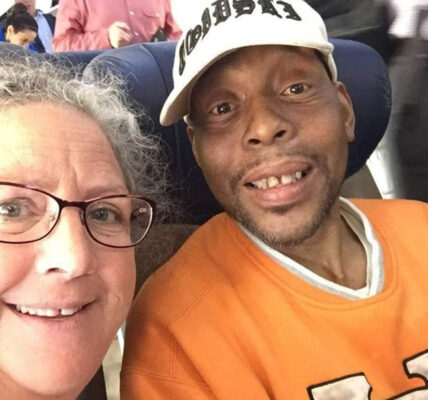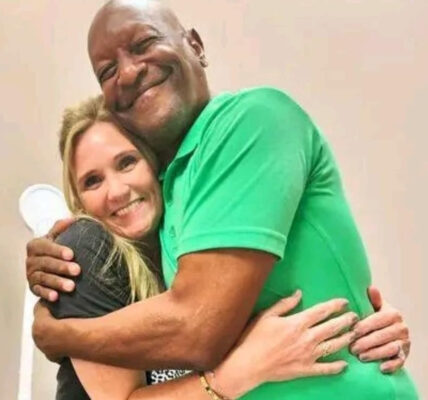
Some moments on the road as a transit operator are routine—pulling up to stops, watching people climb aboard, noting the silence or chatter that fills the bus. But every now and then, something unexpected happens. Something that shifts the day from ordinary to unforgettable.
It was just another shift when I pulled up to a stop in Bountiful, Utah. Passengers waited in the cool air—an elderly man in a wheelchair who I knew stayed in one of the motels nearby, a teenager who had no real home to return to, a mother traveling with her child, doing her best to make ends meet.
I’ve learned their faces over time, carrying them from place to place, listening to pieces of their lives unfold in quiet conversations or weary silences.
As I slowed the bus, something caught my eye. The garage of the home next to the stop stood open, and inside were two long tables. But these weren’t workbenches or cluttered with the usual tools of a household.
Instead, they were neatly arranged with items that spoke not of storage, but of survival: canned food, boxed meals, bottled water, juice, diapers, wipes, hygiene products, even rolls of toilet paper—the kind of things you don’t think about until you don’t have them.
A sign rested on the table, hand-written but clear:
“FREE for those who need it. Take what you can use. Leave something if you can.”
I stared for a moment, hardly believing it. This wasn’t a store, wasn’t a charity office. It was just a family’s garage, transformed into a beacon of generosity.
I turned to my passengers, the ones who knew struggle better than most, and pointed it out. At first there was hesitation—almost disbelief. But then, one by one, they wheeled, stepped, or walked off the bus and into the garage.
The elderly man in the wheelchair carefully reached for a few cans. The teen picked up something small, trying not to take too much. The young mother grabbed diapers, her relief written all over her face.
None of them were greedy. They took only what they truly needed. And when they returned to the bus, they carried not just bags, but smiles—big, grateful smiles that softened the weariness they usually wore. For a moment, the burdens they carried seemed lighter.
Watching them, I felt something stir in me. As a driver, I spend my days seeing people at their hardest moments—late to work, short on fare, lost in thought, or living with circumstances few would choose.
But that day, I saw kindness ripple outward, unasked for and unadvertised. A family had looked at the world around them and chosen not to close their garage door, but to open it wide with compassion.
My heart was full as I steered the bus back onto the road.
I don’t know who that family is. I don’t know if they stood watching quietly from the house, hoping someone would be helped, or if they went about their day without a thought of recognition.
But I do know this: they reminded me, and all of us who stepped off that bus, that love and generosity are still alive in this world.
Sometimes it doesn’t come in grand gestures or sweeping acts. Sometimes it looks like a folding table in a garage, stocked with the simple things that can make someone’s hardest day just a little bit easier.
So to the people who opened their home and their hearts that day: thank you. You didn’t just feed bodies—you lifted spirits. And for everyone who witnessed it, including me, you reminded us that even small acts of selflessness can feel like miracles.




